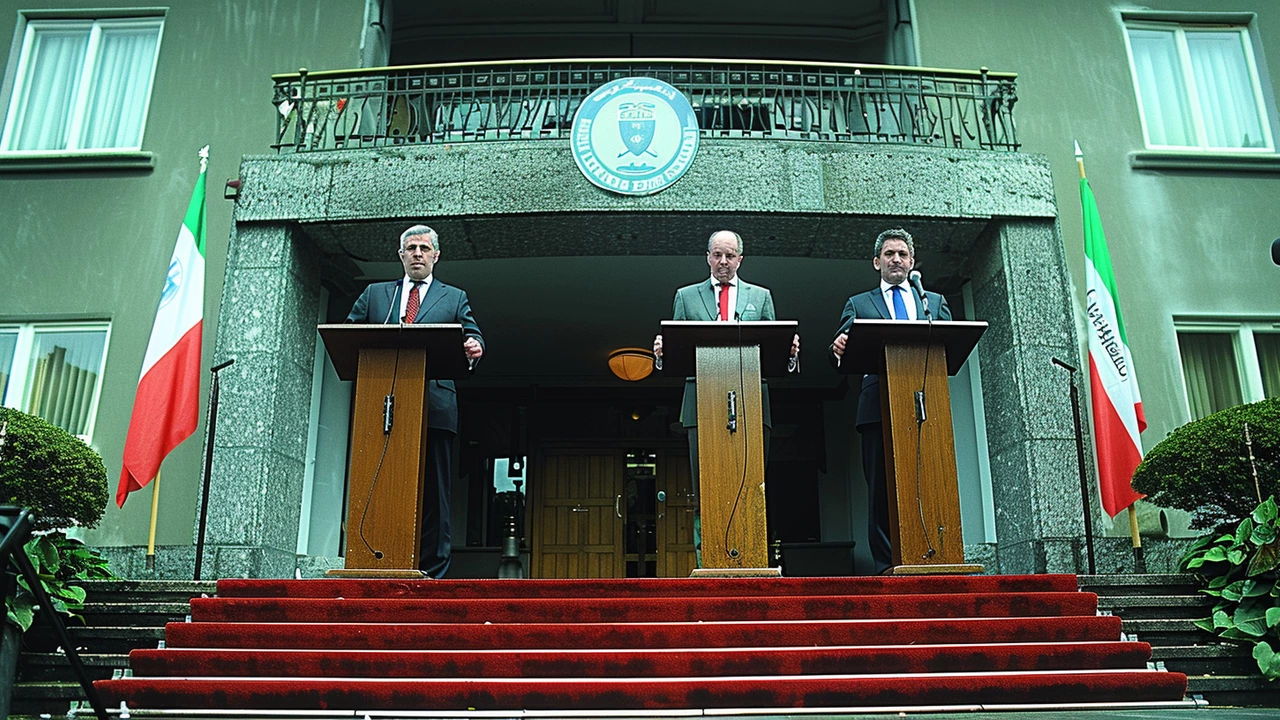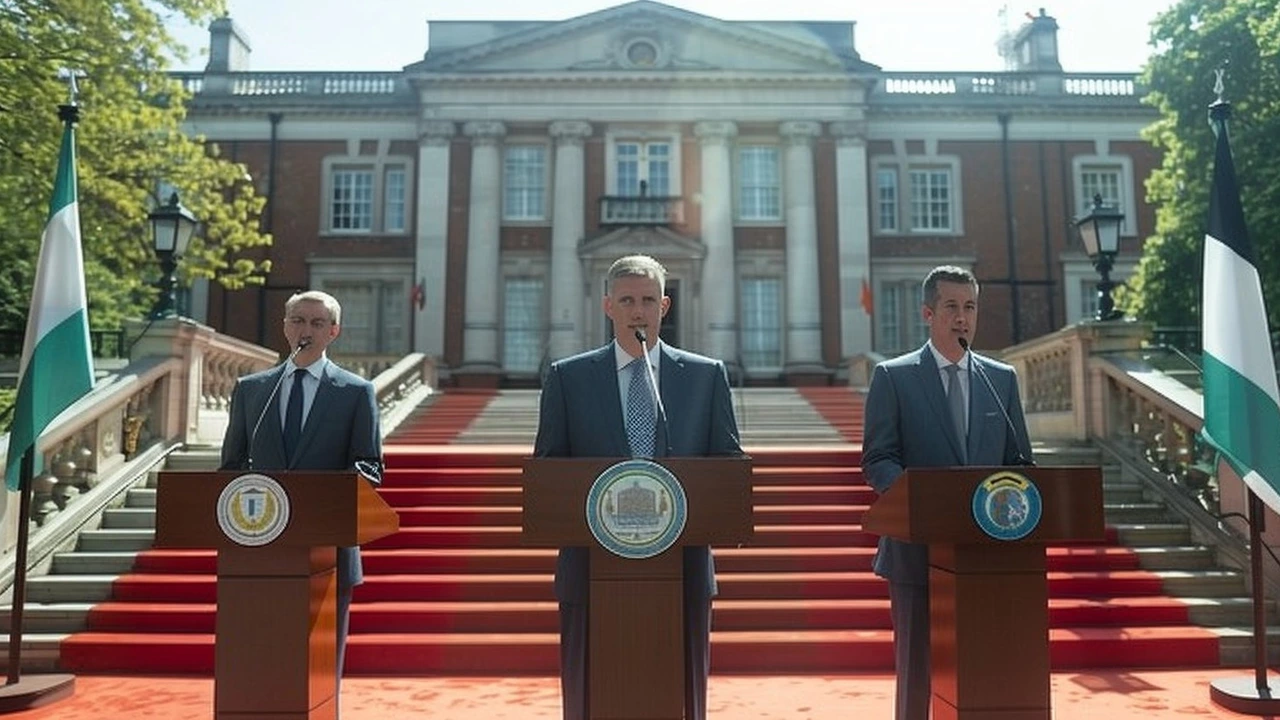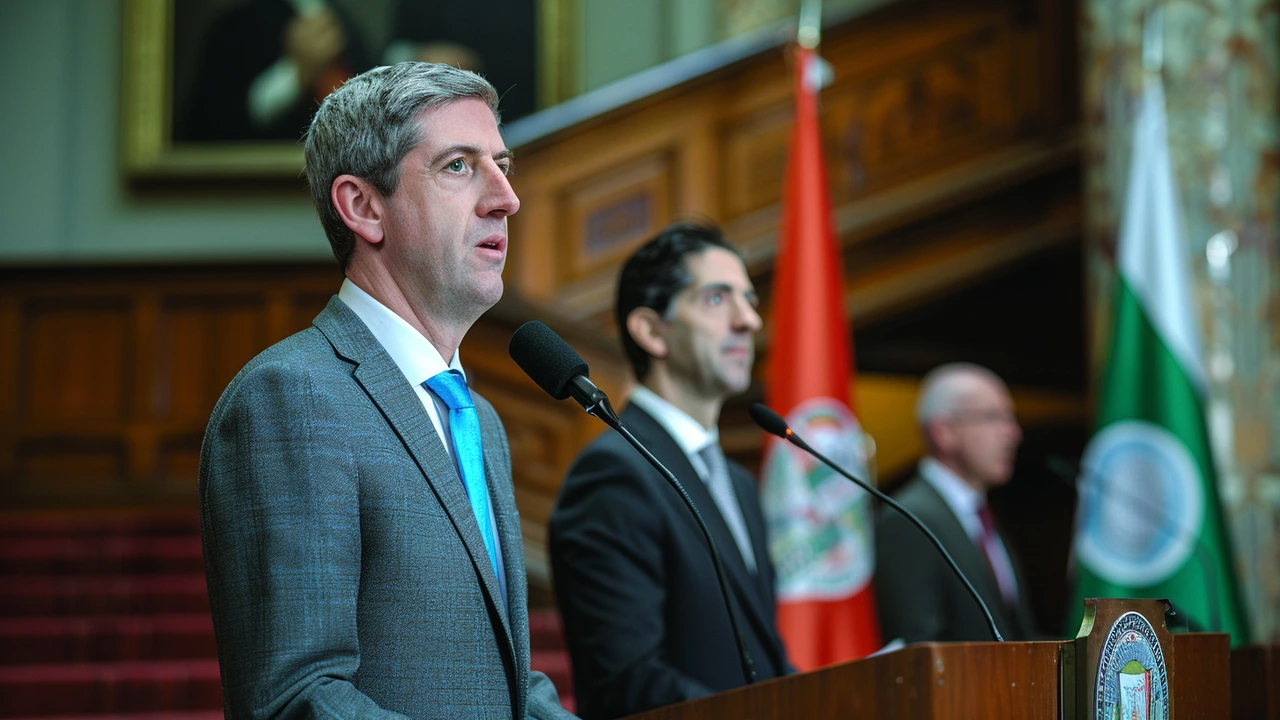In a significant geopolitical development, the governments of Ireland, Spain, and Norway have announced their joint decision to formally recognize Palestine as a sovereign state. This bold and strategic move is effective immediately and signifies a renewed commitment to resolving the long-standing conflict in the Middle East, specifically between Israel and Palestine. The international community has long advocated for a two-state solution, but concrete actions have been sporadic and often stymied by the complexities on the ground.
The decision by Ireland, Spain, and Norway comes amid heightened tensions and violence in Gaza, underscoring the urgency for a diplomatic breakthrough. The recognition of Palestine is perceived as a necessary step in creating a conducive environment for peace negotiations and achieving a balanced coexistence between the two states. The three European nations believe that recognizing Palestine will help alleviate some of the geopolitical pressure and establish a more equitable framework for future discussions.
The Role of the International Community
Taoiseach Simon Harris, representing Ireland, articulated the rationale behind this pivotal decision. In his statement, Harris clarified that the recognition of Palestine is not an attempt to impose a predetermined outcome on either party, nor is it a reward for any form of violence or terrorism. Instead, it is a gesture of support for normalized relations and a sustainable peace process that respects the rights and aspirations of both Israelis and Palestinians.
Harris emphasized that the two-state solution has been the subject of international discourse for decades, yet substantial progress has been elusive. The international community has often voiced its support for such a solution, but real, transformative actions have lagged behind rhetoric. This new recognition aims to catalyze a fundamental paradigm shift that can break the current stalemate and pave the way for meaningful negotiations.
A United Call for Peace
Spain and Norway echoed Ireland's sentiments, with both countries’ leaders affirming their commitment to a peaceful resolution of the conflict. They stressed that the recognition of Palestine should not be misconstrued as an endorsement of any group using violence or terrorism to achieve political ends. Rather, it is an acknowledgment of Palestine’s right to exist as a state alongside Israel, where both nations can prosper in peace and security.
The leaders emphasized that any future solution must guarantee equal rights to self-determination, statehood, human rights, and dignity for both Palestinians and Israelis. The vision of a peaceful Middle East hinges on the mutual recognition and respect for each other’s sovereignty and aspirations. Recognizing Palestine as a state is seen as a foundational step in realizing this vision.

Historical Context
The conflict between Israel and Palestine has deep historical roots, marked by numerous wars, uprisings, and failed peace initiatives. The plight of the Palestinian people and their quest for statehood has garnered significant international attention and sympathy over the years. Conversely, Israel's quest for security and recognition in a largely hostile region has also shaped global diplomatic strategies.
The Oslo Accords, signed in the 1990s, were a notable attempt to bring peace through a negotiated settlement that envisaged the eventual establishment of a Palestinian state. However, subsequent events, including the Second Intifada, the construction of Israeli settlements, and periodic escalations of violence, have rendered the peace process episodic and fractious. Despite numerous resolutions and declarations by international bodies such as the United Nations, a lasting two-state solution has remained out of reach.
Path Forward
The decision by Ireland, Spain, and Norway is seen as a proactive step aimed at reinvigorating the peace process. By formally recognizing Palestine, these nations intend to signal their readiness to support and facilitate dialogue aimed at achieving a lasting solution. They urge other countries to follow suit and contribute to a collective international effort that prioritizes peace, justice, and human rights.
Critics of the recognition argue that such unilateral decisions may complicate the situation further and embolden hardline elements on both sides. However, proponents counter that previous strategies of maintaining the status quo have failed to bring about desired outcomes and that bold moves are necessary to break the impasse.

The Broader Implications
Formally recognizing Palestine holds broader implications for international relations and the geopolitics of the Middle East. It signifies a shift towards a more balanced approach in addressing one of the most protracted conflicts in modern history. It may also influence other Western and non-Western countries to reconsider their positions and contribute to a more diverse international consensus on the issue.
The recognition is expected to bolster the morale of the Palestinian leadership and people, providing them with a renewed sense of legitimacy and support in their quest for statehood. On the other hand, it will challenge Israeli policymakers to engage more constructively with the peace process, acknowledging the growing international recognition of Palestinian aspirations.
Conclusion
In conclusion, the joint decision by Ireland, Spain, and Norway to recognize Palestine as a state represents a significant milestone in the quest for peace in the Middle East. It underscores the importance of taking bold and principled stands in the face of longstanding conflicts. As the world watches, the hope is that this move will catalyze renewed efforts towards a two-state solution, where Israelis and Palestinians can coexist in peace, dignity, and mutual respect.
